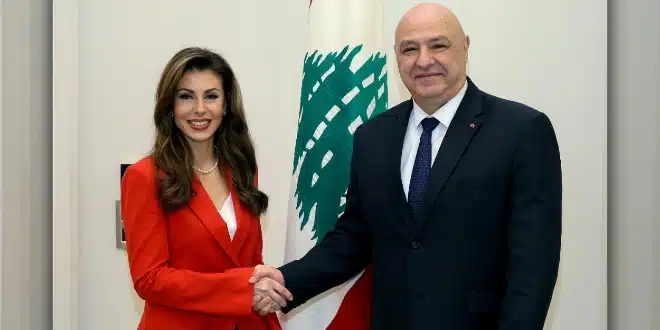U.S. envoy Morgan Ortagus participated in Sunday’s session of the ceasefire monitoring committee, where she heard a detailed briefing from Lebanon’s representative on the military’s plan to maintain exclusive control of weapons across the country. The plan, central to ongoing negotiations, is viewed as a critical step toward stabilizing southern Lebanon and fulfilling international obligations under United Nations resolutions.
Lebanon’s Position and Concerns
According to security sources speaking to the Progressive Socialist Party’s al-Anbaa news portal, the Lebanese delegate emphasized the need for Washington to push back against Israel’s continued military actions. The representative urged Ortagus to press Israel to withdraw from occupied points along the border, warning that “ongoing occupation and repeated security violations will obstruct the army’s ability to deploy effectively in the South Litani region.”
This stance reflects Lebanon’s longstanding frustration over what it views as Israeli encroachments on its territory, which Beirut argues undermine confidence in any ceasefire arrangements.
U.S. Support Tied to Hezbollah Disarmament
Sources said Ortagus responded by reaffirming Washington’s commitment to Lebanon’s sovereignty and stability, praising the Lebanese Army’s role and “mighty efforts” in managing security under difficult conditions. However, she was also clear that U.S. support comes with expectations.
According to the report, Ortagus stressed that “this will remain insufficient until the Lebanese Army manages to remove Hezbollah’s weapons.” The United States continues to view Hezbollah’s arsenal as the primary obstacle to a sustainable security framework in southern Lebanon.
Despite this firm message, Ortagus reassured the committee that Washington has “full confidence in the Lebanese Army” and pledged to provide additional assistance to help it fulfill its mission. U.S. military aid has long been a key pillar of American policy in Lebanon, aimed at strengthening the army as the country’s sole legitimate defense force.
What This Means Going Forward
The exchange highlights the delicate balance Lebanon faces: asserting its sovereignty while navigating external pressure from both the United States and Israel. While Washington’s promise of continued assistance is significant, the explicit link between that support and the dismantling of Hezbollah’s military capabilities underscores just how contentious the road ahead will be.
For now, the Lebanese Army remains caught between domestic political realities and international expectations—tasked with delivering security in a region where any misstep could spark renewed escalation.


